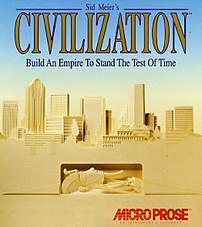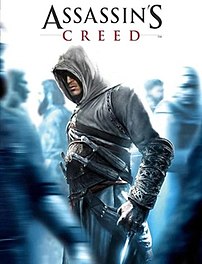I"m also determined to play a lot of videogames. I checked a lot out from our collection at school - i bought them but never had time to play them over the semester. I checked out a lot for hte DS - I like the 2 screens and the different input options. I also took a couple for the XBox360 and the Wii
 Image via Wikipediaand one for the PSP. I have a couple PSP games at home already that I need to play. I figure I"ll blog some little summaries/reactions to the games and ideas I have about using them in assignments. We bought a lot of the games used and many don't have instructions which is a pain for me. I discovered tho that hte students don't read the videogame instructions (and were ticked that they had to read and understand the instructions for the board games we played. I have found good guides and instructions on the IGN site and have put links to them on our website
Image via Wikipediaand one for the PSP. I have a couple PSP games at home already that I need to play. I figure I"ll blog some little summaries/reactions to the games and ideas I have about using them in assignments. We bought a lot of the games used and many don't have instructions which is a pain for me. I discovered tho that hte students don't read the videogame instructions (and were ticked that they had to read and understand the instructions for the board games we played. I have found good guides and instructions on the IGN site and have put links to them on our websiteReviews
 Image via WikipediaMeteos (for the DS) - a puzzle game. I bought it used and it didn't have the instructions. I think I need to read the guide I found on IGN - there are things going on on the screen that I had no understanding of even after playing for 2 hours and sometimes winning. As a puzzle game tho it's kind of typical - match the tiles up in groups of three to have them blast off. Things happen really fast tho - I'd concentrate on the right side of the screen and before I knew it I had lost because of something on teh left hand side. There's some kind of outer space theming - the falling tiles are takng place on different planets. I can see assigning students a group of puzzle games to compare or compare puzzle games on different platforms or different kinds of puzzles. And in the fun class we're going to talk about puzzles so it might be interesting to have them play puzzle games and see what the fun is. Someone I follow on Twitter recommended I check out the Disney verson of Meteos - I'm a big fan of all things Disney so I will look for it when I go shopping later.
Image via WikipediaMeteos (for the DS) - a puzzle game. I bought it used and it didn't have the instructions. I think I need to read the guide I found on IGN - there are things going on on the screen that I had no understanding of even after playing for 2 hours and sometimes winning. As a puzzle game tho it's kind of typical - match the tiles up in groups of three to have them blast off. Things happen really fast tho - I'd concentrate on the right side of the screen and before I knew it I had lost because of something on teh left hand side. There's some kind of outer space theming - the falling tiles are takng place on different planets. I can see assigning students a group of puzzle games to compare or compare puzzle games on different platforms or different kinds of puzzles. And in the fun class we're going to talk about puzzles so it might be interesting to have them play puzzle games and see what the fun is. Someone I follow on Twitter recommended I check out the Disney verson of Meteos - I'm a big fan of all things Disney so I will look for it when I go shopping later. Image via WikipediaLumines II (PSP) - another puzzle game - kind of like Tetris with the falling tiles but the tiles are made up of 4 smaller blocks and each block can be one of 2 colors. You have to maneuver the tile so that you get 4 smaller blocks of the same color in a 2 x 2 arrangement (not a 1 x 4 unfortunately - those I seem to be able to build with no problem). Themusic (in my opinion) is annoying. And some of the flashing skins are hard on my old eyes. The 2 x 2 squares don't disappear immediately - only when the timeline (that maybe is moving in time with the music, I can't tell because the music irritated me and I turned it off) crosses over it. The timeline is a neat feature they added to the tile matching puzzle. if you can work it right, you can stack up 2 x 3 or 3 x 3 (or bigger theoretically
Image via WikipediaLumines II (PSP) - another puzzle game - kind of like Tetris with the falling tiles but the tiles are made up of 4 smaller blocks and each block can be one of 2 colors. You have to maneuver the tile so that you get 4 smaller blocks of the same color in a 2 x 2 arrangement (not a 1 x 4 unfortunately - those I seem to be able to build with no problem). Themusic (in my opinion) is annoying. And some of the flashing skins are hard on my old eyes. The 2 x 2 squares don't disappear immediately - only when the timeline (that maybe is moving in time with the music, I can't tell because the music irritated me and I turned it off) crosses over it. The timeline is a neat feature they added to the tile matching puzzle. if you can work it right, you can stack up 2 x 3 or 3 x 3 (or bigger theoretically Image via Wikipedia
Image via Wikipedia Image via WikipediaSid Meier's Civilization (DS) - ok - i really don't like this kind of game - build units, place units, move units - turn based strategy. You go from the stone age to space age. There are several ways to win - that I like. It had a consistent use of the keys but i couldn't always figure out what triggered the end of my turn and it wasn't always clear to which units I'd already given a destination. It's a good example of in game tutorial level tho. Comparing the content of the tutorials with the directions for the board games we play might be interesting. Or examining the tutorial to see how they teach a variety of skills - what order does the tutorial put things in and is that the optimum pattern. This is definintely one I want to compare across platforms - what did they have to sacrifice to get it on the DS for instance. This isn't a picture of the DS version - it's just the only one I can find at the moment; I'll replace it when I can.
Image via WikipediaSid Meier's Civilization (DS) - ok - i really don't like this kind of game - build units, place units, move units - turn based strategy. You go from the stone age to space age. There are several ways to win - that I like. It had a consistent use of the keys but i couldn't always figure out what triggered the end of my turn and it wasn't always clear to which units I'd already given a destination. It's a good example of in game tutorial level tho. Comparing the content of the tutorials with the directions for the board games we play might be interesting. Or examining the tutorial to see how they teach a variety of skills - what order does the tutorial put things in and is that the optimum pattern. This is definintely one I want to compare across platforms - what did they have to sacrifice to get it on the DS for instance. This isn't a picture of the DS version - it's just the only one I can find at the moment; I'll replace it when I can. Image via Wikipedia
Image via WikipediaN+ (on the PSP) - IT's a good intro the the button mashing type of videogame - one button with the left hand (directions) and one with the right (jump). Except even that is giving me fits. I'd like to blame it on the fact that I"m left handed so i keep trying to jump with the left hand, but mostly don't think that's it
Text Twist - a casual game - I played it on Yahoo Games - URL: http://get.games.yahoo.com/proddesc?gamekey=texttwist. I'm a big fan of Book Worm - maybe it's clear I like puzzle games. I like casual games because you can play them for hours but if you only have a few minutes you can still get in a couple of rounds. This one is a little tougher because you only have 6 letters to work with at a time. I like the twist feature which rearranges the letters because it's hard to rearrange them mentally. There is a timer to compete against. If you ahve the right kind of browser it keeps track of high scores (I was on Firefox and it didn't track them). It's an example of a game with very few rules up front (or maybe very few rules overall). It's on a lot of sites - an example of portal distribution. I can't figure out how they're making money but I enjoyed the game.
Shape Inlay - another casual game on Yahoo Games - URL: http://games.yahoo.com/free-games/shape-inlay - a stream of tiles scrolls across the bottom. You have to drag the pieces up into the puzzle shape, trying to fill it in with the shapes. The drag and drop interface is pretty slick. There's time pressure because if the shape tile area fills up you lose. I can't imagine how you could use up all the tiles so I figure you play to get the most points - you're always going to run out of time/tile space - the trick is to play as long as possible. So you maybe can't win but can delay losing as long as possible. I just noticed - there is no credit for the game creator
![Reblog this post [with Zemanta]](http://img.zemanta.com/reblog_e.png?x-id=f3cc3244-94b3-41a5-94b0-c6b3dabf9583)
![Reblog this post [with Zemanta]](http://img.zemanta.com/reblog_e.png?x-id=358316b4-4256-4954-8bc1-fc8de1de483f)

![Reblog this post [with Zemanta]](http://img.zemanta.com/reblog_e.png?x-id=d3c7cfcc-9d1d-47de-93d1-ce8bcf4a32de)